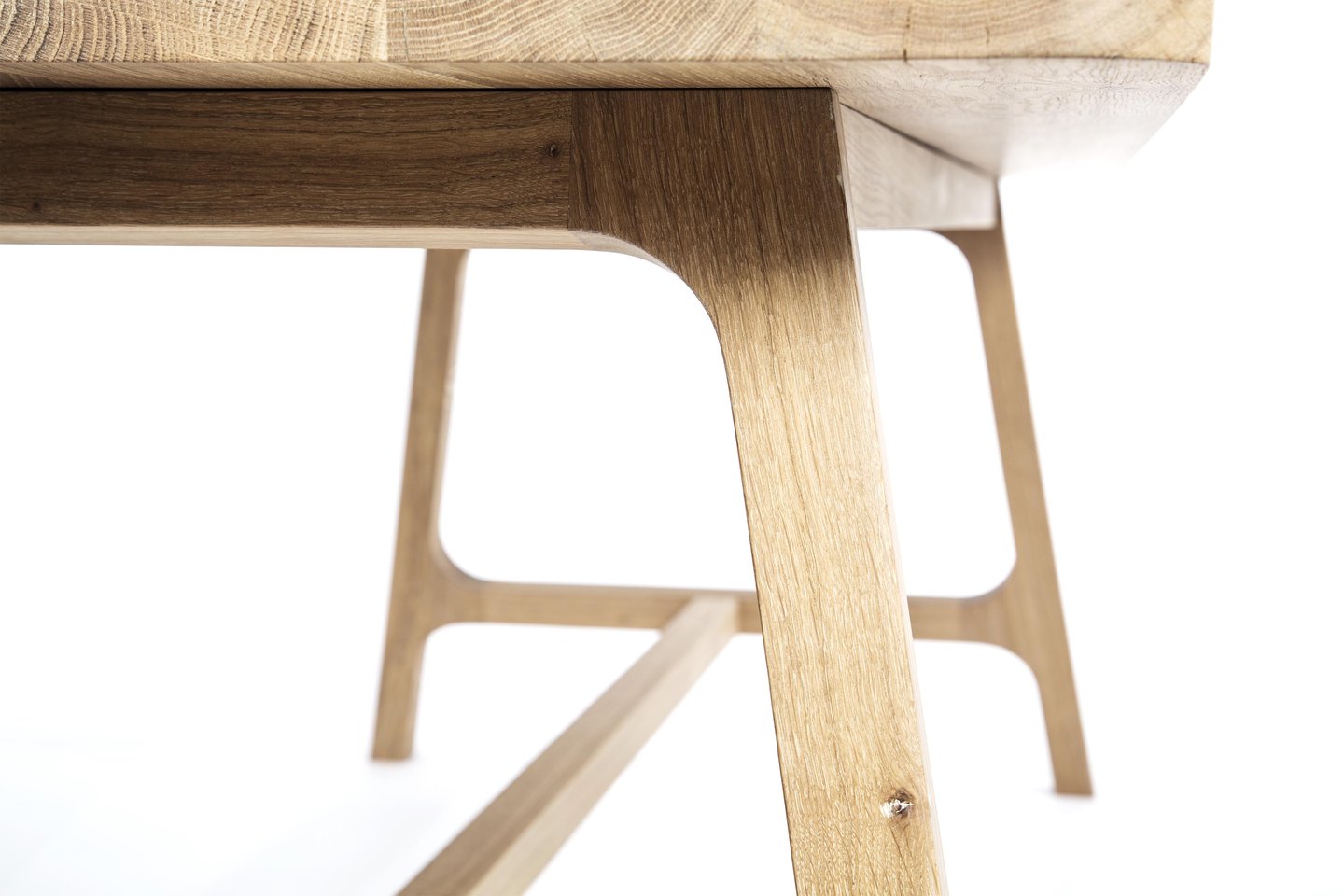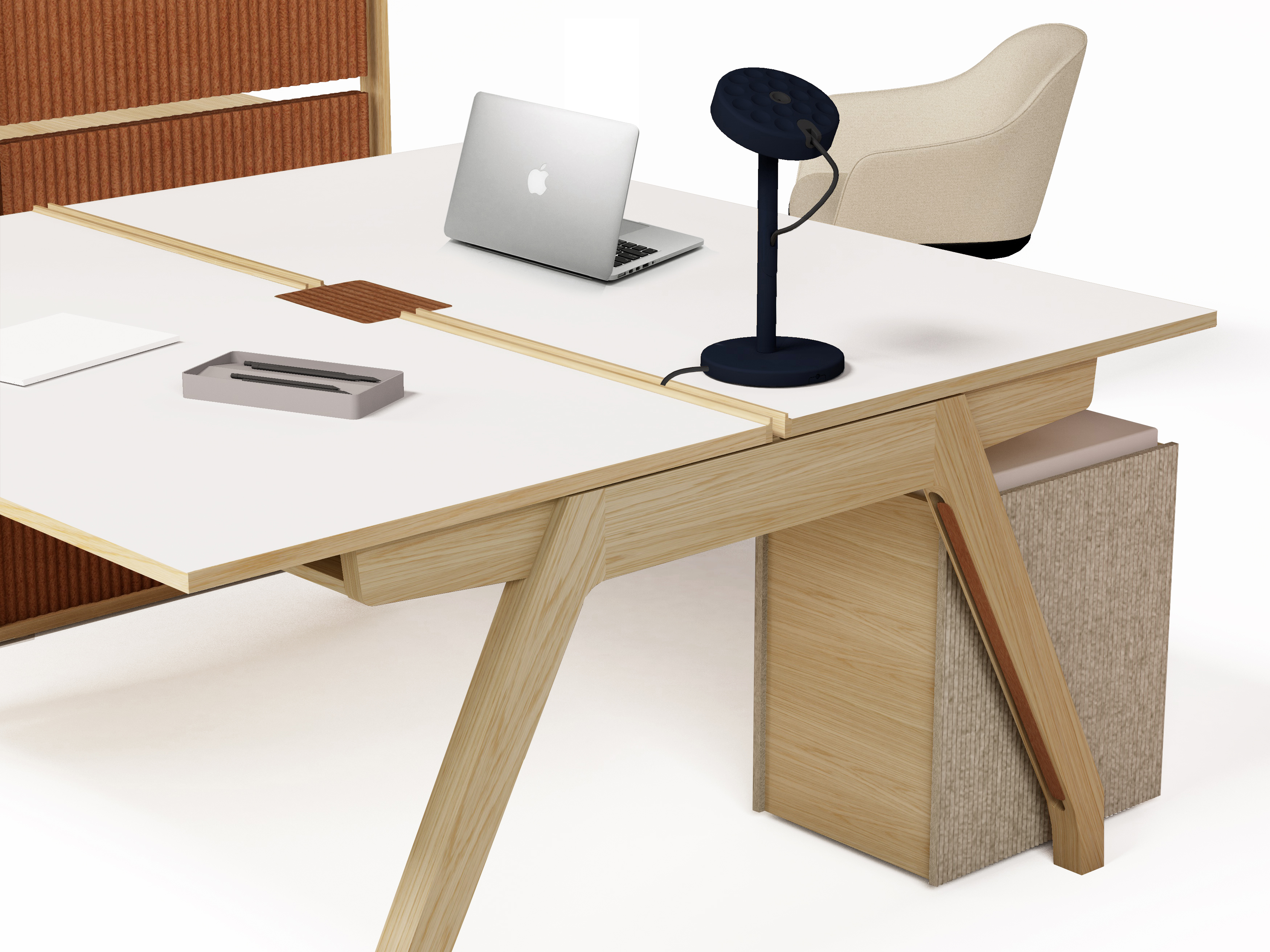A range of professional furniture ERGONOMIc and eco-designed
For KATABA in 2018
THE CONTEXT
- KATABA is a company committed to social and environmental goals. Born from the will to bring the production of furniture and home decoration back into local workshops, it aims for ethical production in short-circuit with the final users.
- KATABA wishes to incorporate environmental and social considerations to its design process in order to answer in the most accurate way to the requests of its customer base in terms of exemplarity.
- KATABA aims to provide a solution to the bad management of resources connected to furniture supply chain (deforestation, lack of end-of-life solutions for furniture,…), or to its heavy reliance on transportation (imports, centralised production,…) and to the consequences of current production models on economic ramifications and territorial resilience.
OUR INVOLVEMENT
- The team will identify the environmental issues connected to a range of office furniture (comprising a desk, partition systems, storage units,…) throughout its lifecycle, and also consider its ergonomic and functional considerations.
- The team will offer innovative eco-design solutions which apply to the full lifecycle of the products (materials, packaging systems, distribution, use, end-of-life), with a mid- and long-term perspective.
- KATABA will be guided from the early development till when the product reaches the market: help in decision making between different technical solutions, design guidance and research
- The improvements over a conventional range of office furniture will be assessed
THE AIMS
- KATABA, Cooperative Mu, and Samuel Accoceberry have teamed up to develop the first range of “co-eco-designed” office furniture intended to be produced in local cottage industry supply chains.
- The range of furniture will strive to be exemplary in terms of social and environmental issues, but also to support the concept of “wellbeing at work” through its ergonomic and functional qualities. These aims will all be achieved through a combination of traditional craftmanship and contemporary design.
THE RESULTS
- Measures put into place throughout the life cycle: choice of a locally sourced and FSC certified 3-plie plywood (ash or oak) with a solid wood base; French manufacturing which includes the valorisation of the production offcuts; VOC-free varnish; reusable transport packaging; reduction of the transport distances; a piece of furniture that can be entirely disassembled and is made of parts that can be replaced or resurfaced.
- A significant reduction of environmental impacts for most of the pieces of furniture in the range, and an improvement plan to further reduce these impacts.
- An initial range of furniture was presented during the World Design Summit and the WorkSpace Expo in 2019.
“KATABA strives to make thrift desirable, and to achieve this, we need to explain it, to justify it. This is what Cooperative Mu, with the strict and exhaustive analysis which goes hand in hand with eco-design approaches, allows us to do. With this method, we are creating a collection which is undeniably exemplary.”
Luc Monvoisin_KATABA Founder
SEE ALSO ...





